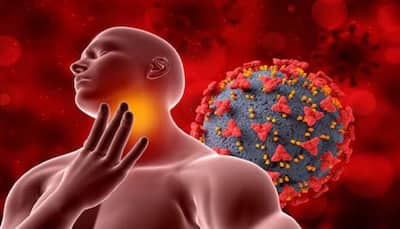Human Metapneumovirus (HMPV) has recently gained attention due to a reported outbreak, with seven cases confirmed. This has sparked concerns and rumors: Is it something to panic about? Does it pose a serious threat to life? Is it comparable to COVID-19? Could it lead to lockdowns? These are just a few of the questions circulating.
Prof. Ashok Rattan, Former CAREC/WHO/PAHO and lead Advisor, Medical Committee & Quality, Redcliffe Labs says, ‘It’s important to note that HMPV is not a new virus; it was first identified in 2001. However, it remains relatively less well-known due to limited research and awareness.’
Human Metapneumovirus (HMPV) is a respiratory virus that causes infections with symptoms similar to the common cold or flu. Most individuals recover within a few days without any complications. However, if the infection is not diagnosed early and worsens, it can lead to more serious symptoms such as fever, sore throat, shortness of breath, and even develop into pneumonia or bronchitis. HMPV outbreaks are most commonly seen during the winter and spring seasons.
HMPV infections are more prevalent among older adults (ages 65 and above), children under 5, and individuals with weakened immune systems. The best way to prevent and protect against the virus is by strengthening the immune system.
Prof. Ashok Rattan said, ‘HMPV is a part of the pneumoviridae family, the same family as Respiratory Syncytial Virus (RSV). It is generally a mild virus and tends to have less severe effects in individuals with a strong immune system.’
Maintaining proper hygiene is the best way to keep viruses at bay. Start by washing your hands with soap and water for at least 20 seconds. If soap and water are not available, use an alcohol-based hand sanitizer to ensure cleanliness and hygiene.
HMPV, like other respiratory viruses, spreads through the mouth, nose, and eyes. To prevent transmission, it’s crucial not to touch your face with unwashed hands, particularly your eyes, mouth, and nose.
Your overall health is largely influenced by what you eat—up to 80%. To maintain a healthy body inside and out, it’s crucial to consume a balanced diet that includes all the essential nutrients to strengthen your immune system. A robust immune system not only helps protect against HMPV but also shields you from seasonal allergies and other illnesses.
It’s recommended to focus on nutrient-dense, home-cooked meals that include immunity-boosting ingredients like turmeric, ginger, and jaggery. Incorporate citrus fruits, pulses, and herbal teas into your meals. Avoid processed and packaged foods as much as possible, and ensure that children are particularly encouraged to eat clean, home-cooked meals.
Vitamin C is key to boosting immunity, and winter offers an abundance of seasonal fruits rich in this nutrient, such as amla, oranges, berries, bell peppers, kiwis, and tomatoes. Additionally, omega-3-rich foods can help reduce inflammation and support lung function.
It’s important to avoid alcohol, as its benefits are limited to use in sanitizers, and limit spicy or sugary foods to maintain a balanced immune system and healthy cholesterol levels.
Proper ventilation is crucial for reducing the concentration of airborne viruses. To minimize the risk of infection, avoid staying in closed spaces and ensure adequate air circulation by keeping doors and windows open. If the air quality index (AQI) in your area is poor, it’s advisable to use air purifiers to maintain clean, fresh air indoors.
It’s natural to feel concerned when hearing about a virus affecting children or posing a higher risk to older adults, like parents or grandparents. However, stress won’t help the situation. The best approach is to stay calm, take the necessary precautions, and focus on keeping yourself and your family safe. Incorporating practices such as yoga, meditation, and regular exercise can help manage stress and maintain good health.
Getting 7-8 hours of quality sleep is crucial for maintaining a healthy body. Along with eating nutritious food and staying active, ensuring proper rest is also essential for overall well-being.
The risk of transmission is higher in crowded areas. To reduce the chance of inhaling airborne particles that linger in the air after someone coughs or sneezes, it’s important to cover your mouth and nose with a mask.
Frequently touched surfaces should be thoroughly cleaned with an alcohol-based disinfectant, particularly those within reach of children.
Prevention is always better than dealing with illness or seeking a cure. The symptoms of HMPV are quite common and can easily be mistaken for other seasonal health problems. If you experience symptoms such as a sore throat, cough, cold, congestion, or breathing difficulties, it’s wise to get tested and make informed decisions. Staying aware and taking precautions is key to preventing the spread and keeping yourself safe.
Stay informed on all the , real-time updates, and follow all the important headlines in and on Zee News.










